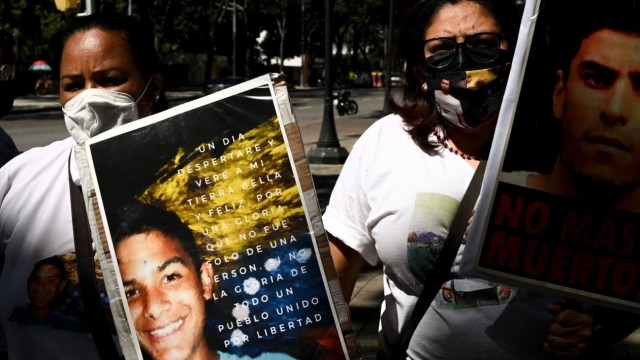
The United Nations Human Rights Council should renew the mandate of its Independent International Fact-Finding Mission on Venezuela, 125 national and international organizations working on Venezuela said today. The Mission, established in 2019 to investigate systematic human rights violations in Venezuela, has played a key role in pushing for accountability for serious crimes in the country and ensuring international scrutiny over the ongoing crisis, the groups said in a joint question-and-answer document.
By Amnesty International
Aug 17, 2022
The Mission’s experts are scheduled to present their third report at the 51st session of the Human Rights Council, from September 12 to October 7, 2022. A resolution is needed to extend the mission’s mandate beyond September. In the past, a group of Latin American countries led this initiative and presented a text establishing the Mission’s mandate for adoption. If a vote is called, a simple majority of voting members is needed to adopt the text.
Latin American governments should once again lead this effort for accountability and ongoing monitoring and urge all UN member states to support the renewal of the mandate, the groups said. The groups will hold a news conference about this key issue on August 17 at 10 a.m. Caracas time.
The Human Rights Council established the Mission in 2019 to investigate “extrajudicial killings, enforced disappearances, arbitrary detentions and torture and other cruel, inhuman or degrading treatment since 2014,” including sexual and gender-based violence, with a view to “ensuring full accountability for perpetrators and justice for victims.” In 2020, the mission’s initial one-year mandate was extended for another two years, until September 2022.
In 2020, the mission concluded that there were sufficient grounds to believe that crimes against humanity had been committed in Venezuela, that “high-level authorities had knowledge of those crimes”, and that “commanders and superiors knew or should have known about those crimes and … did not take measures to prevent or repress them.” A year later, in its second report, the Mission documented the country’s lack of judicial independence and impunity for human rights violations, and reported that Venezuela’s justice system served as a mechanism of repression instead of a guarantor of rights, emboldening state agents to continue carrying out abuses.
The failure of the Venezuelan authorities to implement the Mission’s recommendations and the structural conditions that prompted the creation of the Mission remain, including impunity, lack of domestic avenues for redress for victims of abuses, and the government’s continued attempts to evade international scrutiny, the groups said. In the face of a Venezuelan government that does not seriously respond to the recommendations, the Mission has advanced the search for truth, justice, and reparation for victims and survivors of human rights violations. It has also outlined the fundamental reforms needed to prevent further violations and abuses.
…
Read More: Amnesty International – Venezuela: UN Human Rights Council Should Renew Experts’ Mandate
…

